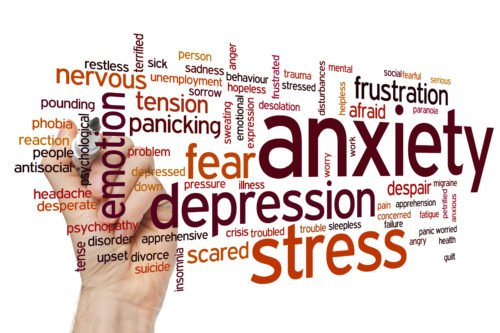Do you know how interconnected is your body to your emotions? You may not realize it but the state of your body can affect your mood. And vice-versa, your mood can have an effect on your body’s state.
Have you noticed how sometimes when you are feeling “blue,” you feel lethargic? Or how when you are sick, you feel irritable?
Well, that is the case because your body and your mind are intertwined. Not only your body and mind are connected, but your spirit is also another component of your reality. All these aspects are what make you human. A being with a body, mind, and spirit.

ARE YOU FEELING DEPRESSED OR ANXIOUS?
The prevalence of depression and anxiety in the US is considerable, around 7% and 15% respectively. Have you ever wondered if you or a loved one has a diagnosable emotional problem? The following are the clinical diagnoses according to the Diagnostic and Statistical Manual of Mental Disorders (DSM: the diagnostic tool for mental health professionals ).
A diagnosis of a depressive disorder involves experiencing some of the following for more than two weeks:
- a depressed mood (feelings of sadness, irritability, worthlessness, guilt, helplessness, hopelessness)
- loss of interest or pleasure in daily activities
- loss of energy
- poor concentration
- changes in appetite
- weight loss or weight gain
- sleep disturbances
- suicidal thinking
On the other hand, anxiety disorders are characterized by excessive anxiety and some of the following symptoms occurring more days than not for at least six months:
- an anxious state (feeling on edge, worrying, being restless)
- irritability
- muscle tension
- difficulty concentrating
- sleeping problems
- weight changes

MOOD AND BODY WEIGHT
As you know, mood disorders are not the only prevalent conditions facing Americans. Alarmingly, obesity has reached epidemic levels. And interestingly enough, it is comorbid with mood and anxiety disorders. Much research now shows that many individuals who experience mood and anxiety disorders are also overweight.
Studies have shown that obesity is associated with an approximately 25% increase in odds of mood and anxiety disorders. In addition, it has been shown that those with a diagnosis of depression or anxiety are significantly more likely than those without each diagnosis to be obese and physically inactive and to drink and smoke more.
At the same time, literature reviews confirm a reciprocal link between depression and obesity. Sometimes obesity was shown to increase the risk of depression, but depression has also found to increase the odds for developing obesity. On the other hand, anxiety and obesity show a positive association but not a very strong one.
The causal relationship between anxiety and obesity or depression and obesity is not straightforward. However, the impact that mood has on eating patterns, quality of life, and body weight is undeniable. This is another reason why it is of extreme importance to pay attention not only to your body but to your emotional state. Simultaneously, getting a hold of your health and your weight will have a positive impact on your mind. If needed, counseling or coaching can make a real difference!
To a Fitter Healthier You,
The Fitness Wellness Mentor



